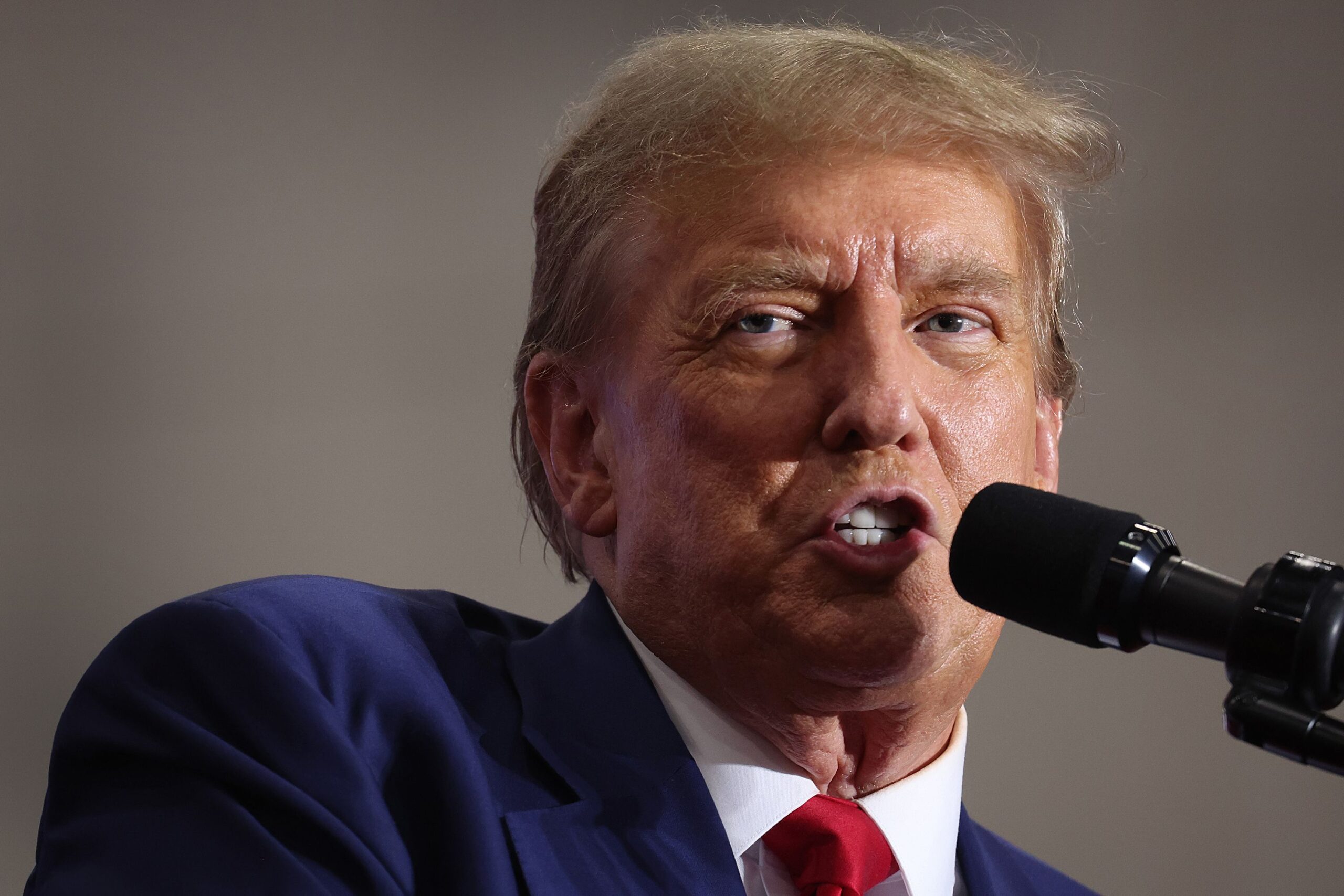Former President Donald Trump is facing an uphill battle in his efforts to avoid the unprecedented situation of a former president standing trial for criminal charges. Trump’s recent attempt to postpone his impending trial and relocate it from Manhattan was rejected in court on Monday, marking yet another legal setback for the presumptive Republican nominee.
This trial, stemming from payments made to an adult film actress prior to the 2016 election, is one of four criminal cases against Trump. Despite pleading not guilty in all cases, his legal options are dwindling. His increasingly extreme attacks on the judge presiding over the New York case, Judge Juan Merchan, and those involved in his other trials, coupled with his claims of political persecution, are drawing attention.
Trump’s attempts to discredit the New York trial before it begins have escalated. He recently criticized Judge Merchan on his Truth Social network for allegedly infringing on his First Amendment Rights. This followed an expansion of a gag order on Trump by Judge Merchan after the former president targeted the judge’s daughter on social media.
The jury questionnaire for the trial, obtained by CNN, reflects the unique political context of the case. Potential jurors will be asked about their news sources, attendance at Trump rallies, membership in extremist groups like the Proud Boys, and their feelings about the former president. However, they will not be asked about their political affiliations or voting history, maintaining the impartiality of the jury selection process.
The prosecution’s case is not focused on proving the illegality of the hush money payment to Stormy Daniels in 2016. Instead, they aim to demonstrate that Trump falsified business records to conceal the payment, potentially misleading voters ahead of the 2016 election. Critics, however, argue that framing the case as election interference is a stretch.
Trump’s legal challenges have often resulted in delays, but with the New York trial set to begin in just four weekdays, further postponements seem unlikely. Yet, given Trump’s history as a prolific litigant and his political incentives to evade accountability, more last-minute legal challenges cannot be ruled out.
If the trial commences as scheduled on April 15, Trump will be confined to a courtroom four days a week, leaving the campaign trail open for his rival, President Joe Biden. Meanwhile, Trump is attempting to address potential vulnerabilities in his campaign, recently stating that the issue of abortion should be left to the states. Biden, however, dismissed this claim, stating at a Chicago fundraiser, “Trump is in trouble, and he knows it. He’s worried voters will hold him accountable.”
In Washington, special counsel Jack Smith filed a brief to the Supreme Court on Monday, aiming to counter Trump’s claim of presidential immunity that has delayed his federal election interference trial. Smith argued that no person, including the president, is above the law, and that the presidency does not require immunity from accountability for alleged violations of federal criminal law.
Trump’s legal battles extend beyond New York and Washington. In Florida, Trump-appointed Judge Aileen Cannon has been accused of delaying the forthcoming trial over Trump’s alleged hoarding of classified documents. In Georgia, Trump’s lawyers are arguing that his efforts to overturn his 2020 election loss were an exercise of his free speech.
As Trump’s legal battles intensify, the question remains whether the reality of a president on trial will rally his base or spark a backlash, particularly if he is found guilty.

